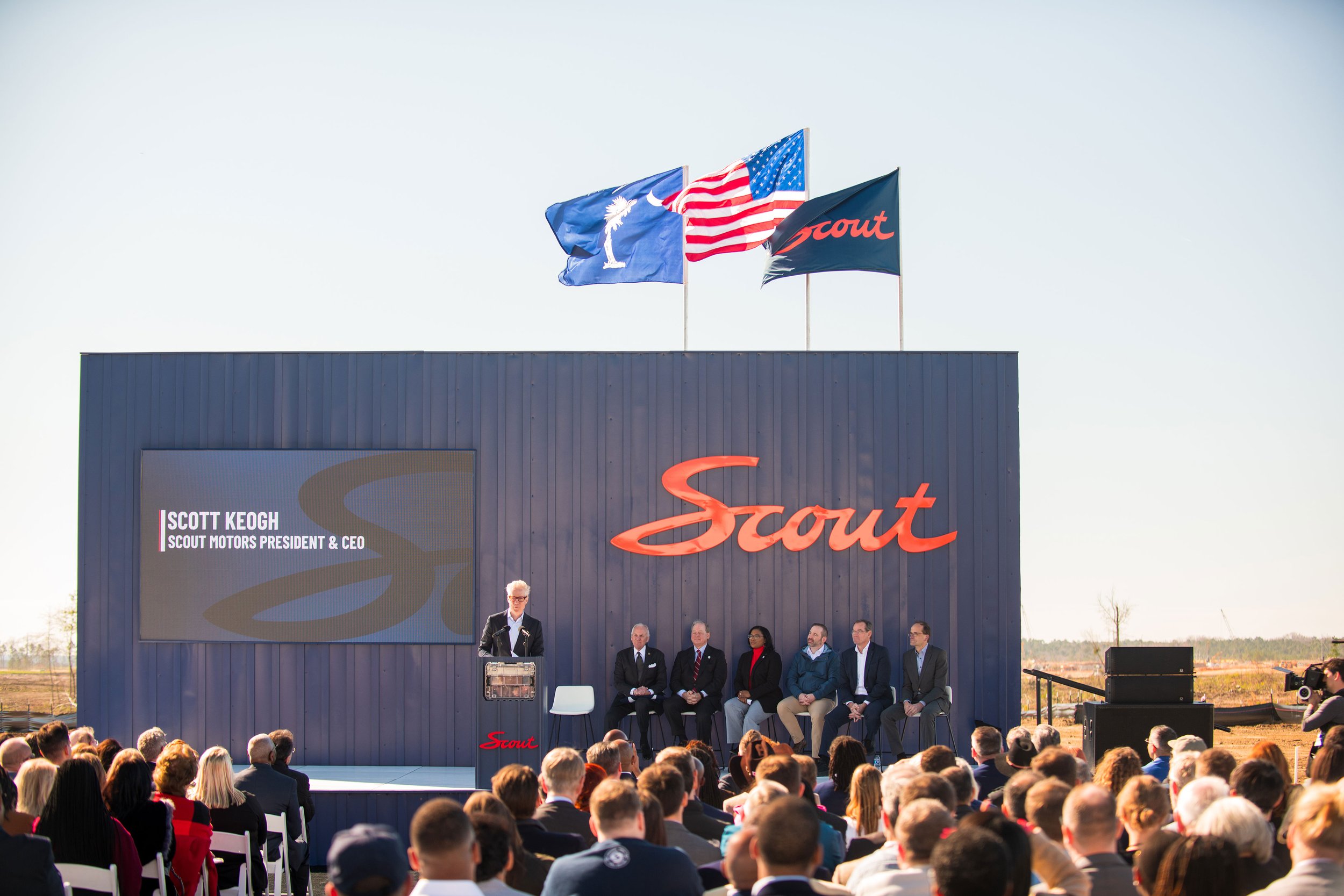On Thursday, Scout Motors – a brand backed by Volkswagen – launched its first electric vehicles (EVs) and announced plans to develop a new line of plug-in hybrid vehicles alongside its all-electric models. This marks a major shift for the brand, reflecting Volkswagen’s efforts to expand its presence in the U.S. amid slower-than-expected EV adoption and rising production costs.
Here's ads banner inside a post
Scout Motors, an American brand that originally operated from 1961 to 1980, was initially expected to offer only EV models. However, the slower-than-expected EV market growth and high costs prompted Scout to adjust its strategy and include extended-range electric vehicles (EREVs). Scott Keogh, Scout’s CEO and former VW executive in the U.S., shared, “As a startup, we can pivot quickly. Adding range extenders was a smart move.”
EREVs: A Flexible Solution for Market Volatility
Extended-range electric vehicles, or EREVs, are a type of plug-in hybrid that features EV motors and batteries as well as a traditional combustion engine, which acts as a generator when the battery runs out. Keogh noted that this new line would better prepare Scout Motors for market fluctuations as EV demand falls short of initial expectations.
He explained, “We believe electrification is the future. EREVs are essentially EVs but come with a smart ‘backup plan’ to ensure a safe journey.” He also stressed that Scout has no plans to produce traditional combustion-engine-only vehicles.
Here's ads banner inside a post
Ambitious Goals in the U.S. Market
Scout Motors’ first two models – a full-size pickup truck and a large SUV – are expected to cover around 40% of the high-profit U.S. market. Keogh mentioned the company aims to be profitable within the first year after launching its models, which will be manufactured at a new $2 billion plant in South Carolina.
“The pickup and large SUV markets are among the most profitable in the world, and we’re focusing on them,” Keogh said. Achieving profitability quickly would be a significant success, as many EV startups like Rivian and Lucid are currently incurring high production losses.
Scout’s initial production target is around 200,000 vehicles per year, with plans to use batteries supplied by VW’s joint venture in Canada. Notably, Scout will sell its vehicles directly to consumers rather than through VW’s U.S. dealer network.
Here's ads banner inside a post
Creating a New Experience in the EV World
Scout’s first two models, the Traveler SUV and Terra Pickup Truck, are set to launch in 2027. These models boast modernized designs inspired by classic Scout vehicles, featuring sleek exteriors and high-quality interiors with large horizontal screens and soft-touch materials.
Both the Traveler and Terra are expected to start at prices between $50,000 and $60,000, with incentives available for EV models. Keogh indicated that EREV pricing would fall within this range but declined to specify whether they would be more or less expensive than their all-electric counterparts.
Scout reported that EREVs would offer more than 500 miles of range, compared to 300 miles for all-electric models. Designed to climb 100% grades and accelerate from 0-60 mph in 3.5 seconds, Scout’s EVs promise a powerful experience, delivering up to 1,000 lb.-ft. of torque.
Competing with Major Players
Scout’s SUV is expected to rival traditional off-road models from Jeep, Ford Bronco, and Toyota Land Cruiser. Meanwhile, the Terra pickup will join the full-size truck segment, currently led by Ford, General Motors, and Stellantis’ Ram. However, the electric pickup market, where Scout will compete, is still developing.
While companies like GM and Ford rushed to launch electric pickups to compete with EV startups and Tesla, sales have slowed. This market segment has sold approximately 58,000 units in the first half of the year, less than 1% of the total 7.9 million light vehicles sold in the U.S., according to Motor Intelligence. Still, the market saw a 35% sales increase from Q1 to Q2.
Keogh believes Scout can distinguish itself with its products, competitive pricing, and brand appeal. Scout is also exploring future product expansions, including potentially smaller vehicles.
“We’re open to scaling down in the future,” Keogh said. “But our initial target is the optimal market, and we believe we’ve achieved that with these two models.”



